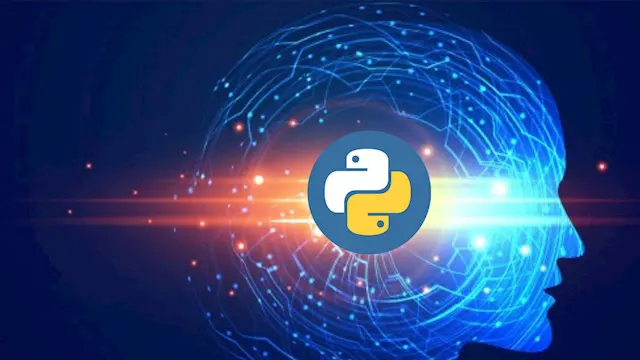
Machine Learning with Python
Self-paced videos, Lifetime access, Study material, Certification prep, Technical support, Course Completion Certificate
Uplatz
Summary
- Certificate of completion - Free
- Reed courses certificate of completion - Free
Add to basket or enquire
Overview
Uplatz offers this comprehensive course on Machine Learning with Python. It is a self-paced course consisting of video tutorials. You will be awarded Course Completion Certificate at the end of the course.
Machine Learning is one of the newest skills to emerge in the last decade, altering fields from consumer electronics and healthcare to retail. This has led to strong inquisitiveness about the industry among many students and working professionals. Machine learning has become an essential part of many commercial applications and research projects, but this field is not exclusive to large companies with extensive investigation teams. If you are learning machine learning with Python, even as a beginner, this course will explain you ways to build your personal machine learning solutions. With all the data available today, machine learning applications are restricted only by your thoughts.
Machine learning is the kind of programming which gives computers the capability to automatically learn from data without being openly programmed. This means in other words that these programs change their performance by learning from data. For a software developer or a business analyst it is important to you might be curious about how machine learning can change the way you work and take your career to the next level. This machine learning tutorial will help you achieve your goals by becoming an expert in machine learning.
After successful completion of this course you will be able to:
- Learn supervised and unsupervised learning algorithms
- Learn linear regression to logistic regression to k-means clustering to random forest and other decision tree techniques
- Using Pandas and NumPy to accomplish various data mining and data wrangling tasks to turn your data into useable training data
- Learn to use scikit-learn
- Comb over your available data and implement practical machine learning techniques
- Learn to use computer science techniques
- Build the foundation of artificial intelligence, big data, and predictive models
- Build basic deep neural networks
- Learning reinforcement and deep learning in machines
Curriculum
Course media
Description
Machine Learning using Python - Course Syllabus
1. Introduction to Machine Learning
- What is a Machine Learning?
- Need for Machine Learning
- Why & When to Make Machines Learn?
- Challenges in Machines Learning
- Application of Machine Learning
2. Types of Machine Learning
- Supervised
- Unsupervised
- Reinforcement
3. Components of Python ML Eco system
- Using Pre-packaged Python Distribution: Anaconda
- Jupyter Notebook
- NumPy
- Pandas
4. Regression Analysis (I)
- Regression Analysis
- Linear Regression
- Examples on Linear Regression
- scikit-learn library to implement simple linear regression
5. Regression Analysis (II)
- Multiple Linear Regression
- Examples on Multiple Linear Regression
- Polynomial Regression
- Examples on Polynomial Regression
6. Classification (I)
- What is Classification
- Classification Terminologies in Machine Learning
- Types of Learner in Classification
- Logistic Regression
- Example on Logistic Regression
7. Classification (II)
- What is KNN?
- How does the KNN algorithm work?
- How do you decide the number of neighbors in KNN?
- Implementation of KNN classifier
- What is a Decision Tree?
- Implementation of Decision Tree
8. Clustering (I)
- What is Clustering?
- Applications of Clustering
- Clustering Algorithms
- K-Means Clustering
- How does K-Means Clustering work?
9. Clustering (II)
- Hierarchical Clustering
- Agglomerative Hierarchical clustering and how does it work
- Working of Dendrogram in Hierarchical clustering
- Implementation of Agglomerative Hierarchical Clustering
10. Association Rule Learning
- Association Rule Learning
- Apriori algorithm
- Working of Apriori algorithm
- Implementation of Apriori algorithm
11. Recommender Systems
- Introduction to Recommender Systems
- Content-based Filtering
- How Content-based Filtering work
- Collaborative Filtering
- Implementation of Movie Recommender System
Who is this course for?
Everyone
Requirements
Passion to learn and succeed!
Career path
- Machine Learning Engineer
- Deep Learning Engineer
- Data Scientist
- Data Science Engineer
- Python Programmer
- Python Data Science Developer
- Python Machine Learning Engineer
- Machine Learning Scientist
- Data Analyst
- Data Strategist/Architect
- Machine Learning Application Developer
- Bigdata and ML Engineer
- AI/ML Engineer - Python/Deep Learning
- Staff Engineer - Machine Learning
- BI/Visualization Developer
Questions and answers
Currently there are no Q&As for this course. Be the first to ask a question.
Certificates
Certificate of completion
Digital certificate - Included
Course Completion Certificate by Uplatz
Reed courses certificate of completion
Digital certificate - Included
Will be downloadable when all lectures have been completed
Reviews
Currently there are no reviews for this course. Be the first to leave a review.
Legal information
This course is advertised on reed.co.uk by the Course Provider, whose terms and conditions apply. Purchases are made directly from the Course Provider, and as such, content and materials are supplied by the Course Provider directly. Reed is acting as agent and not reseller in relation to this course. Reed's only responsibility is to facilitate your payment for the course. It is your responsibility to review and agree to the Course Provider's terms and conditions and satisfy yourself as to the suitability of the course you intend to purchase. Reed will not have any responsibility for the content of the course and/or associated materials.


